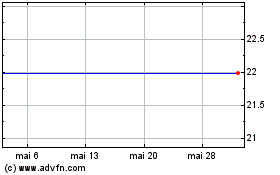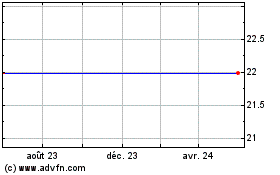UPDATE:Sen Kohl Probes Price Differences In Drugs In US, Abroad
16 Mars 2010 - 11:49PM
Dow Jones News
Sen. Herb Kohl (D., Wisc.) is pressing pharmaceutical companies
such as GlaxoSmithKline PLC (GSK, GSK.LN), Eli Lilly & Co.
(LLY) and Pfizer Inc. (PFE) to explain why their drugs often cost
four times more in the U.S. than in other countries.
Letters from the Special Committee on Aging, which Kohl chairs,
ask the chief executives of six pharmaceutical companies with the
most-widely prescribed medicines why products such as heartburn
pill Nexium, cholesterol drug Lipitor and depression treatment
Cymbalta cost for U.S. patients so much. AstraZeneca PLC (AZN,
AZN.LN), Novartis AG (NVS, NOVN.VX) and Sanofi-Aventis SA (SNY,
SAN.FR) also received letters from Kohl.
The letters note that U.S. consumers spend an average of $878 a
person on prescription drugs, compared with $446 a person in other
industrialized countries. AstraZeneca's Nexium, for instance, costs
$3.91 in the U.S. for one dose compared with 88 cents in Germany,
according to IMS Health Inc. (RX), a health-information company.
Nexium is the second most-widely prescribed medicine in the U.S.
Pfizer's Lipitor costs $2.82 for one dose, compared with $1.83 in
Canada and 71 cents in New Zealand.
"These differentials are dramatic and often put American
consumers at a severe disadvantage globally," Kohl said in the
letters, sent Tuesday. Kohl also heads the Senate appropriations
subcommittee that oversees the U.S. Food and Drug Administration's
budget. He said the differing prices can't be explained by
differences in how the medicines are produced or manufactured.
AstraZeneca spokesman Blair Hains said the company received the
letter and would respond to Kohl's staff. He said the majority of
U.S. patients with prescription-drug insurance coverage pay on
average less than $30 for a month's supply of Nexium. He said
AstraZeneca also has a robust program in place to assist patients
who struggle to cover the costs of the medicine.
Eli Lilly spokesman Edward Sagebiel said a variety of factors
contribute to the price differences. He said prices may be kept
"artificially low" by government controls, and differing currency
values may play a role. He said the company hasn't received a copy
of Kohl's letter yet.
Representatives from the other companies weren't immediately
available to comment.
The letters come as Congress is making a final push to revamp
the U.S. health-care system in the hopes of expanding coverage and
lowering costs. Kohl has supported a variety of moves aimed at
lowering drug costs, including allowing the federal government to
negotiate drug prices directly with pharmaceutical companies, and
letting consumers buy prescription medicines from abroad. The two
issues are controversial and are strongly opposed by the drug
industry. The programs appear unlikely to be included in final
health-care legislation.
The pharmaceutical industry struck a deal in the summer with the
White House, saying they would support health-care reform and
contribute $80 billion in health-care cost savings over 10 years,
in part by lowering some medicines' prices to close a gap in
seniors' Medicare coverage.
The letters also ask the companies what percentage of their
operations are based in the U.S. and how much the companies spend
annually on marketing the drugs. The U.S. is one of the few
countries that allows pharmaceutical companies to advertise
prescription drugs directly to consumers. Such spending totals
about $4 billion a year.
The Senate Special Committee on Aging will hold a hearing on
prescription-drug prices Wednesday. The meeting, entitled "Seniors
Feeling the Squeeze: Rising Drug Prices and the Part D Program,"
will probe how prescription-drug costs affect senior citizens. Sen.
Bill Nelson (D., Fla.) will guest-chair the hearing.
-By Jared A. Favole, Dow Jones Newswires; 202-862-9207;
jared.favole@dowjones.com
IMS Health (NYSE:RX)
Graphique Historique de l'Action
De Avr 2024 à Mai 2024

IMS Health (NYSE:RX)
Graphique Historique de l'Action
De Mai 2023 à Mai 2024
